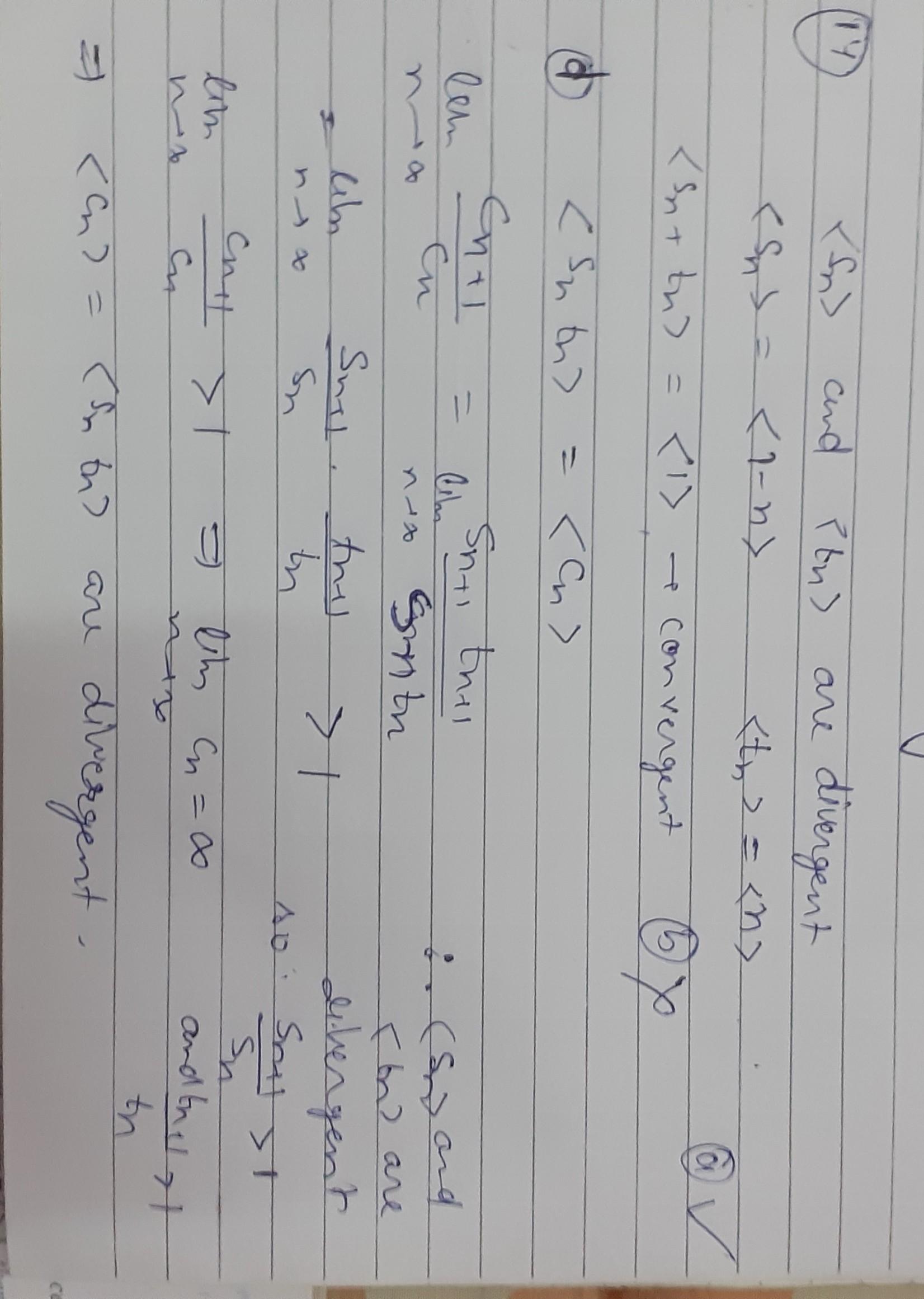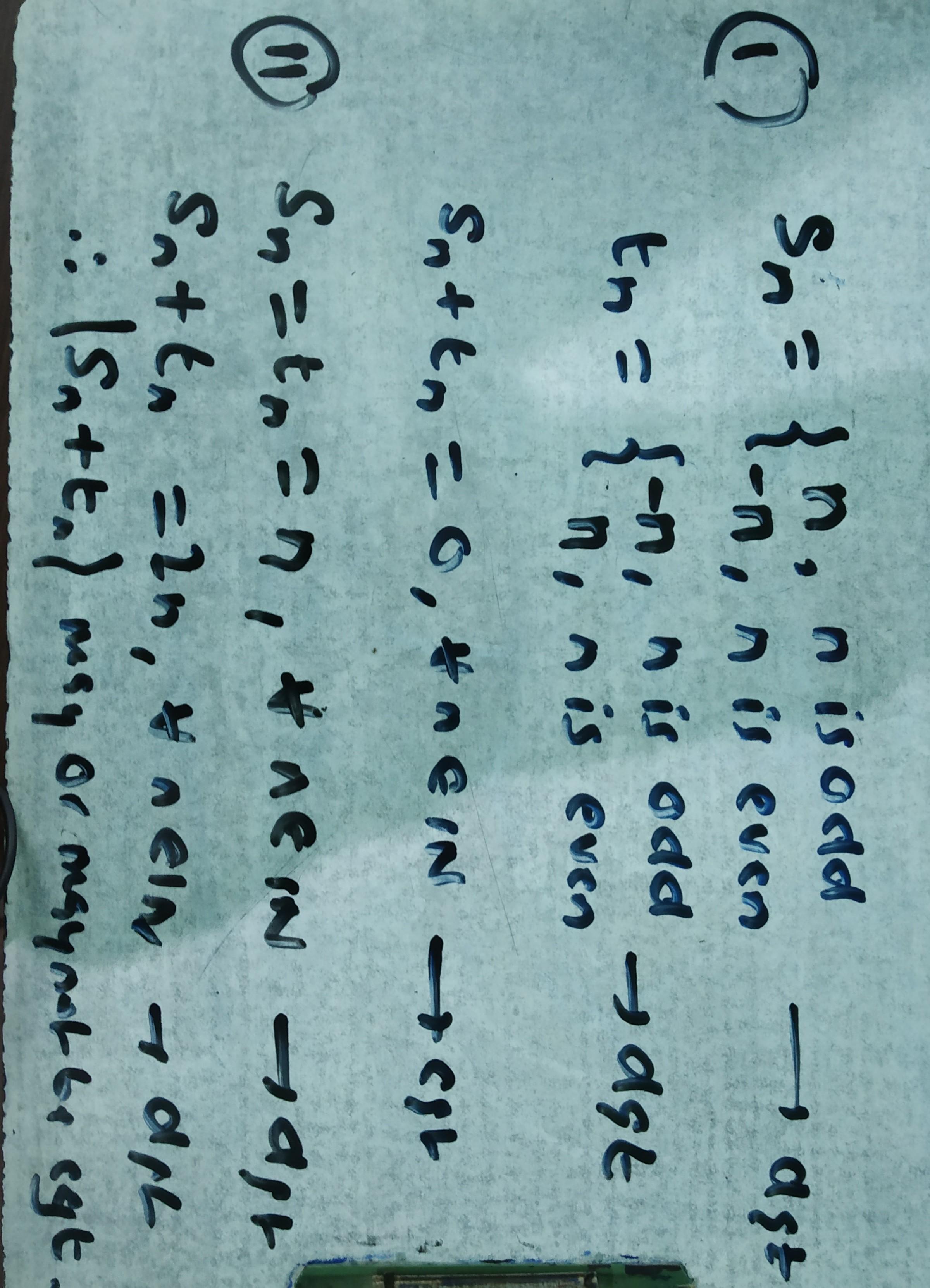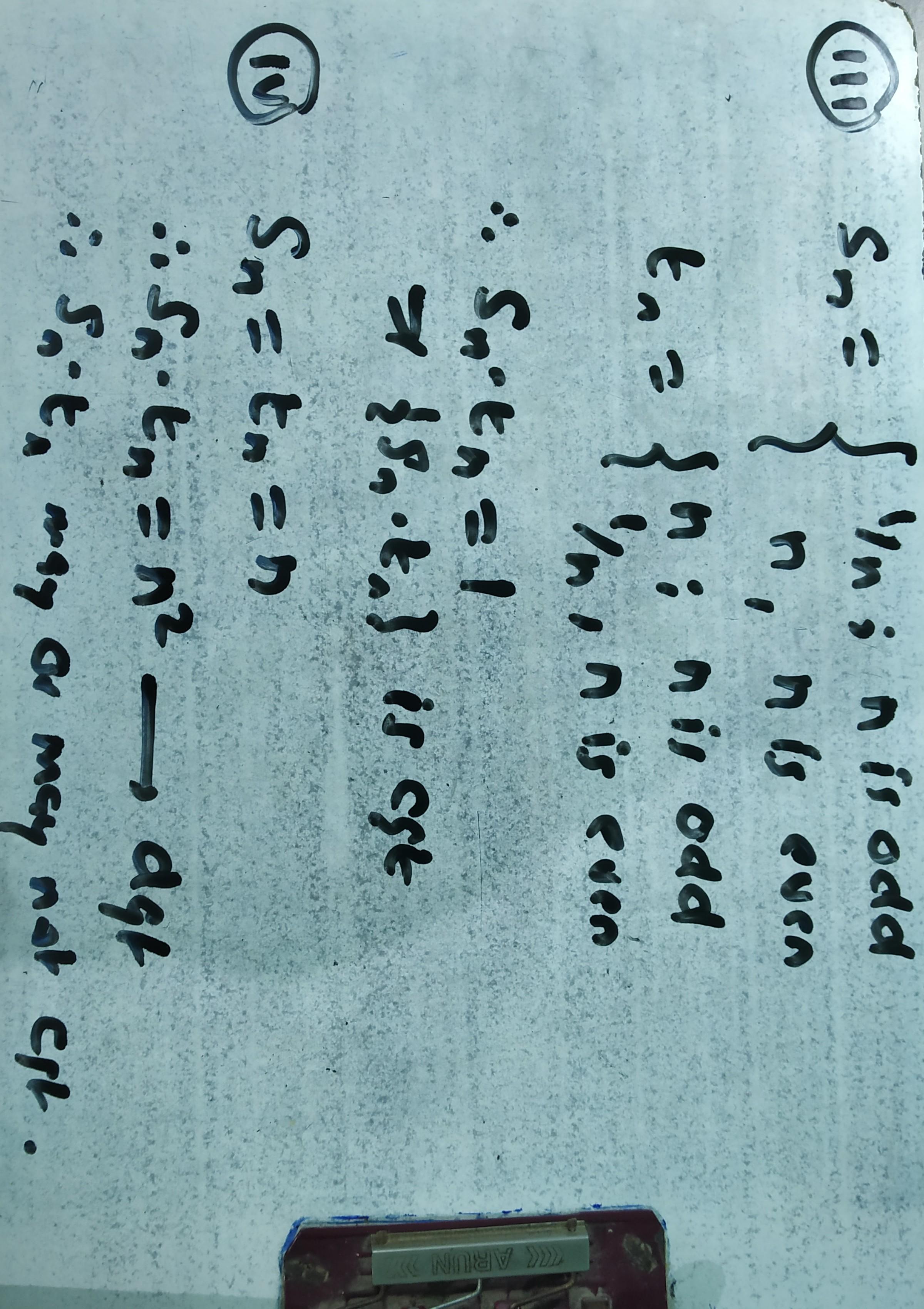Time management is very much important in IIT JAM. The eduncle test series for IIT JAM Mathematical Statistics helped me a lot in this portion. I am very thankful to the test series I bought from eduncle.
Nilanjan Bhowmick AIR 3, CSIR NET (Earth Science)- IIT JAM
- Mathematics (MA)
14. let the sequence < s, > and < ,> are divergent. (a) the sequence < s, + 1, > may or may not be convergent (b) the sequence < s, +1,>is always divergent (c)
14. Let the sequence < S, > and < ,> are divergent. (a) the sequence < S, + 1, > may or may not be convergent (b) the sequence < S, +1,>is always divergent (c) the sequence
- 0 Likes
- 7 Comments
- 0 Shares
-
![comment-profile-img]() >
>
-
![comment-profile-img]() >
>
Sourav Jana
we can't define option a,b,c,d in proper way. cause their arises various types of conclusion depending on which way we choose this two sepuence
-
![comment-profile-img]() >
>
-
![comment-profile-img]() >
>
Deepak singh 1
A and C are correct..
-
Shashi ranjan sinha
options a,c are correct and b,d are incorrect
-
![eduncle-logo-app]()
1 is not a dgt sequence.
![eduncle-logo-app]()
why?
![eduncle-logo-app]()
it is a infinite oscillating sequence, not a divergent sequence.
![eduncle-logo-app]()
what definition do you have of divergent sequence?
![eduncle-logo-app]()
Any sequence which doesn't converges is called divergent sequence. It may be finite or infinite oscillating sequence or it can be properly divergent sequence.
![eduncle-logo-app]()
you do not understand the definition of divergent or oscillating sequence please see attachment, ex 3 is yours example.
![eduncle-logo-app]()
according to you oscillating sequence is a part of divergent sequence, but it is not true both are different .
![eduncle-logo-app]()
This is a definition of divergent sequence according to Wikipedia
![eduncle-logo-app]()
wrong definition. this is not a standard definition.
![eduncle-logo-app]()
see this definition.... what u said is not a standard definition is also followed by "Rudin"
![eduncle-logo-app]()
I have doubt in your 1 example but you do not differentiate between oscillations or divergent. but what can I do, Understand as you wish.
Do You Want Better RANK in Your Exam?
Start Your Preparations with Eduncle’s FREE Study Material
- Updated Syllabus, Paper Pattern & Full Exam Details
- Sample Theory of Most Important Topic
- Model Test Paper with Detailed Solutions
- Last 5 Years Question Papers & Answers
Sign Up to Download FREE Study Material Worth Rs. 500/-










 >
>
 >
>












Sourav Jana
I think question needs to be more clear